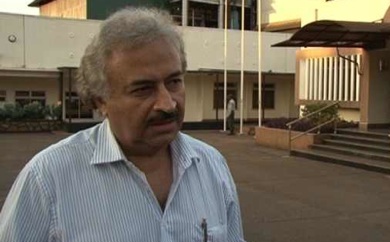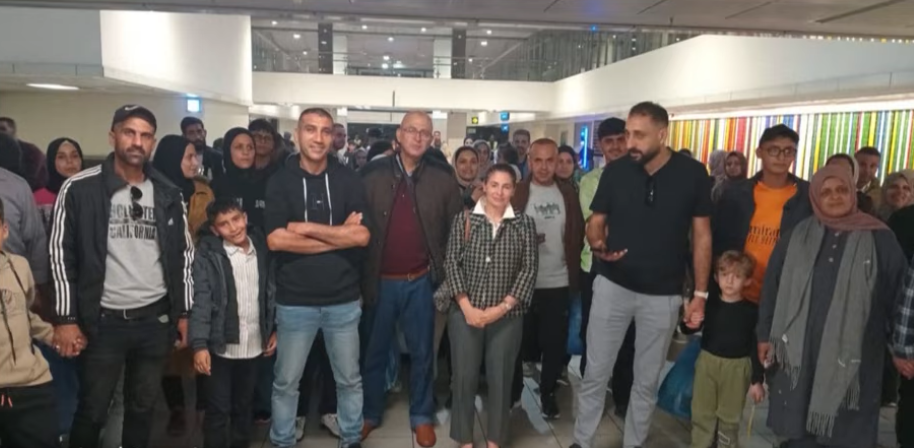Mayur Madhvani, Group Managing Director — in 1971 dictator Amin evicted his family from Uganda; now his company wants to evict Acholis from land
Will Museveni Regime Repeat Eviction Of Acholi As Colonials Did In 1911?
Over the last few years, the issue of land grabbing has become more prominent in Acholi sub region than anywhere else here in Uganda as more and more people lose their homes and livelihoods to government agencies and investors or international corporations as a result of displacements.
Land grabbing occurs when powerful forces seize control over land and associated resources such as minerals and forests, and water, to control benefits of its use.
The implications of land grabbing are wider than just the loss of property; it can lead to a number of disastrous consequences including destitution, loss of identity and deaths.
In most rural communities in Acholi sub region the land they own is their only means of subsistence and security. It is a home, source of sustenance, and a source of income through agriculture and livestock rearing.
So the manner in which the Ugandan government is trying to shield the Madhvani Group of Companies, by fronting for them as they attempt to acquire land in Amuru district is sending the wrong signals to local communities who are already suspicious that the regime wants to force them off their land.
Uganda’s Attorney General, Peter Nyombi, in a letter dated 15 December 2014 to the minister of Land and Housing, Daudi Magereko, ordered for the immediate surveying of the land in which the Madhvani Group has an interest in Amuru.
Never mind that there is still a standing court appeal on the same land, which has not yet been disposed off by the High Court in Gulu. Local leaders have repeatedly said that the people in Acholi are not against investment but it has to be done with the interest of local communities at the heart of any such investment, brought to the region.
Furthermore, they have said that Madhvani Group has the right to directly negotiate with land owners or district land boards if he so wishes, so nobody quite understands why it is always state house and the Uganda government acting as the enforcer on this issue.
A report by Oxfam entitled “Land and Power, The growing scandal surrounding the new wave of investments in land” exposed the manner in which governments in Africa are colluding with multinational companies from the West or cronies in their own governments to dispossess communities of land in their respective countries.
In Uganda, the study’s findings indicated that the dispossession was widespread and discriminate.
It listed the case of Uganda National Forestry Authority (NFA) granting a license to a UK- based New Forests Company Uganda Limited (NFC) to establish a timber plantation as part of the global initiative to fight climate change and greenhouse emissions.
NFC promised to provide jobs, build schools and health facilities in the areas of Luwunga and Namwasa.
An Oxfam investigation found that “thousands of people in affected communities have alleged that land clearances, which have taken place to make way for NFCs operations in Uganda, have been accompanied by distress and violence, and have left many in a state of poverty..”
The report quotes a dispossessed former land-owner, Francis Longoli: “I remember my land, three acres of coffee, many trees mangoes and avocados. I had five acres of banana….I was given awards as a model farmer. I had cows for milk, ten beehives, two beautiful permanent houses. My land gave me everything from my living to my childrens education. People used to call me Omataka someone who owns land. Now that is no more. I am one of the poorest now.”
“Francis is among more than twenty thousand people who have been evicted from their homes and land in Kiboga district, and in nearby Mubende district, to make way for NFC plantations,” Oxfam wrote.
These people lost their rights to land, their livelihoods were disrupted, and houses and households destroyed.
A separate study, Land, Life and Justice synthesized the implications of palm oil plantation on the environment, livelihoods and food sovereignty in Kalangala, central Uganda.
The palm oil project which was established in 1998 by the Government of Uganda with support from the United Nations International Fund for Agricultural Development and the World Bank aimed at increasing the supply of cooking oil in the country. But despite this objective, the project was heavily criticized by locals for various reasons, one of them being that it started amidst limited consultation of local people who owned and occupied the land.
The critical issue that emerged in the study was that out-growers were forced into selling their land to the project after failing to keep up payments for fertilizers and other farm inputs which were supplied to them on credit. At the same time, small holder farmers were forcefully displaced from their ancestral lands, at the cost of their livelihoods and their land which was grabbed by government. They have since been denied access to former grazing grounds, water resources, building materials and large tracts of the forest on which they depended which were also cleared to make way for new palm oil plantations.
Looking back at the history of Acholi, we now know that it is not the first time that the people in Amuru are being forced off their land.
In 1911 when it wanted to establish a wildlife sanctuary, the British colonial government forcefully evicted from the same land that Madhvani Group has an interest in, people from their customary and ancestral lands.
The reasons advanced for the forceful eviction were threefold: One, the British colonial government claimed that the area was infested with tsetse flies and small pox, and for this reason, the people who occupied the area needed to be relocated to other areas that were deemed free not only from such diseases but also flies that caused the diseases.
Secondly, the colonial policy of administration at that time emphasized and was aimed at bringing services closer to people and for administrative purposes; easy administration, reduction of administrative costs and implementation of the forced labor programs.
Lastly, the practice of eviction was part of the divide-and-rule policies which were employed by the British to contain the Lamogi rebellion of 1911.
So people were forced off their ancestral lands and confined in camps near Gulu town where they remained from 1911 to 1936. In the meantime, Lakang and other areas which were communally owned by the people of Lamogi, Pagak, Boro, Parabong, Pabbo and Pagak were converted into game reserves. To the south of Lakang, Murchison Falls National Park which was established in 1936, the same year when Gulu district was also created. And to the north another Reserve that covered areas of Lakang, Kinene, Apaa, Anaka and Lamogi, all territories where the people were forcefully evicted in 1911.
The northern reserve was turned into conservation area to promote sports hunting as part of the broader tourism project. As such, sports hunting permits which gave exclusive rights to foreign tourists and a few privileged locals working with the colonialist, to hunt game in the reserve, were issued to licensed gun holders.
Over a century later, history seems to be repeating itself.
Acholi were forcefully driven into concentration camps and lived in confinement under dehumanizing conditions for nearly 20 years. All the while their land was being surveyed to ascertain what was under the soil and to demarcate fertile grounds for investment.
As such, land in post-conflict Acholiland, particularly Amuru, has now become the most targeted asset for acquisition by the government of Uganda, and Ugandans in positions of influence — on an individual basis or in association with foreign partners from Zimbabwe, South Africa, Canada and Denmark.
Powerful generals in the military and police have also been singled out as interested parties in the land acquisition.
The proposal to establish a sugarcane industry in Amuru by Madhvani Group, under Amuru Sugar Limited, started in 2006 as an initiative led by President Yoweri Museveni to develop the conflict affected northern Uganda.
Madhvani Group started operations in Uganda as early as 1914 under its founder Muljibhai Madhvani when he came from India. He opened the Kakira cotton ginnery in 1921 before investing in the sugar business in 1922. He went on to establish Kakira sugar Works Limited in Jinja in 1924; at no particular point in the years since independence in 1962 did any Ugandan government act on behalf of Madhvani Group, as an enforcer on the land upon which these projects stood, as the current regime now does.
President Museveni told the people of Amuru during his frequent visits there that the proposed Amuru Sugar Works Limited was a joint venture between the Ugandan government and Madhvani Group whereby his government would hold 50 percent shares in the project on behalf of the public and the people of Amuru, while Madhvani Group would hold the other 50 percent.
Madhvani Group said that after examining the various options in the country, Amuru district was considered suitable because, the company claimed, it was totally free of inhabitants (which is a fantasy since the people were still in camps) and was in an extremely isolated area with no infrastructures such as water, electricity and proper roads. The group admitted that they surveyed the area when people were still in the concentration camps and found it suitable.
They revealed that they started their tour to survey land from West Nile, and from their findings, West Nile was relatively dry and not favorable for sugarcane growing. Thereafter, they moved to Adjumani district but the area was largely forested, so the project would meet a lot of encumbrances from trees. They finally moved to Amuru. This area they found favorable; the soil type was suitable for sugarcane growing.
The project, they said, required the acquisition of 40,000 hectares (one hectare is 2.47 acres) of land in perpetuity and at zero cost; implicitly the people in the area were not to return from the camps, giving way for the land for development of the sugar industry.
Half of the land, 20,000 hectares, would be used to establish a central business district (nucleus state). The factory would entirely be under the management of Madhvani Group and the remaining land would leased to local communities – the people evicted from the same land – to grow sugarcane under the out grower scheme.
At the same time, Madhvani Group would acquire a title deed to the land in question (40,000 hectares) in a quest to secure additional funding of about US $50 million from the African Development Bank (ADB).
The government, through Amuru District land Board has already allocated 10,000 hectares of the land to Madhvani Group and the remaining 30,000 hectares was handed over through a High court ruling which has since been challenged.
In 2007, Madhvani Group together with President Museveni went to Amuru to try convincing the communities to support the project and over the years the president has held public rallies in Amuru district and has personally held discussions with community leaders at State House in a bid to get the land handed to Madhvani Group.
With such intentions as articulated in the accounts by the proprietors of the Amuru Sugar Works Limited, does anybody therefore wonder why the project has encountered stiff resistance and raised various arguments not only in Amuru but in the entire northern region of Uganda?
Again to reiterate the point, Acholi leaders have indicated that they are interested in the supporting development initiatives in their area but their major concern is the unwillingness on the side of government to be transparent in providing clear and precise information regarding the type of investments, process of land acquisition, actors involved and tangible benefits from the projects to their people.
They have questioned the unwavering support of the project by President Museveni, politically connected individuals and the elite within government; which is raising more questions as to the authenticity of Amuru Sugar Works Limited.
Which is why the latest letter from the Attorney General will only serve to deepen resistance to the Madhvani Group project.
In conclusion, any prospects for a peaceful and just resolution to the land conflict between communities in Amuru and Madhvani Group appears uncertain. Local communities feel completely vulnerable since they have only just returned to their villages from the camps in which they were forced to live; and are currently consumed by attempting to reconstruct their livelihoods and communities.
They dont need another war to protect land which rightfully belongs to them.
Mr. Olara is editor of Acholi Times.






